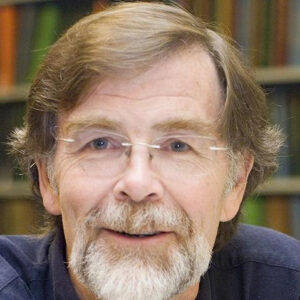Humanitarianism Contested: The Challenge of Aid to Gaza
Virtual Briefing Series
Tuesday, April 16th, 2024 | 12:00 PM – 1:00 PM ET
It has now surpassed six months since the explosion of war between Israel and Gaza. This war has unsurprisingly caused high tensions among policymakers and the public across the globe, and the issue of basic humanitarian aid has become a centerpiece of this growing crisis. An alarming death toll continues to rise, the UNWRA has come under extreme scrutiny, and basic aid into Gaza has become a topic of contention and scenes of violence, including the highly publicized deaths of World Central Kitchen aid workers. Important questions over how to safely allow aid into Gaza, how NGOs across the world are trying to tackle this crisis, and the role of regional powers are all crucial topics to averting further escalation of human suffering. At this point, how can we assess the efforts of the UN and other intervening NGOs? What are the challenges unique to sending aid into Gaza? How can the looming famine be averted? What is the future of aid and governance within Gaza?
Join us on Tuesday, April 16th from 12 to 1 PM EDT as we tackle these questions and more with Amr Hamzawy, Senior Fellow and Director of the Middle East Program at the Carnegie Endowment for International Peace; R. David Harden, Managing Director of the Georgetown Strategy Group, and Professor Thomas G. Weiss, Presidential Professor of the Graduate Center and Director Emeritus of the Ralph Bunche Institute for International Studies at the City University of New York, for an engaging and important discussion on one of the defining crises of the modern era.
COULDN’T ATTEND OUR EVENT? Don’t worry. You can watch it below
SPEAKERS:
Amr Hamzawy
 Amr Hamzawy is a senior fellow and the director of the Carnegie Middle East Program. His research and writings focus on governance in the Middle East and North Africa, social vulnerability, and the different roles of governments and civil societies in the region. He was previously an associate professor of political science at Cairo University and a professor of public policy at the American University in Cairo.
Amr Hamzawy is a senior fellow and the director of the Carnegie Middle East Program. His research and writings focus on governance in the Middle East and North Africa, social vulnerability, and the different roles of governments and civil societies in the region. He was previously an associate professor of political science at Cairo University and a professor of public policy at the American University in Cairo.
His research and teaching interests as well as his academic publications focus on democratization processes in Egypt, tensions between freedom and repression in the Egyptian public space, political movements and civil society in Egypt, contemporary debates in Arab political thought, and human rights and governance in the Arab world. His new book On The Habits of Neoauthoritarianism – Politics in Egypt Between 2013 and 2019 appeared in Arabic in September 2019.
Hamzawy is a former member of the People’s Assembly after being elected in the first Parliamentary elections in Egypt after the January 25, 2011 revolution. He is also a former member of the Egyptian National Council for Human Rights. Hamzawy contributes a weekly op-ed to the Arab daily al-Quds al-Arabi.
R. David Harden
 Dave Harden is the Managing Director of the Georgetown Strategy Group, a Washington, D.C. next generation firm that leverages talent, technology, and capital to help solve some of the world’s most complex problems. Working with the private sector, local communities, and governments, the Georgetown Strategy Group seeks to promote trade and investment, advance security and stability, develop economic
Dave Harden is the Managing Director of the Georgetown Strategy Group, a Washington, D.C. next generation firm that leverages talent, technology, and capital to help solve some of the world’s most complex problems. Working with the private sector, local communities, and governments, the Georgetown Strategy Group seeks to promote trade and investment, advance security and stability, develop economic
opportunity, and facilitate the delivery of humanitarian assistance in the Middle East and Africa. The Georgetown Strategy Group represents leading technology and financial firms in the Middle East and partners with Massachusetts Institute of Technology, Lincoln Laboratory to bring
pre-commercial innovations to complex crises.
In May of 2019, President Trump awarded Mr. Harden the Presidential Award for Distinguished Service, the highest award in the Foreign Service, for “sustained extraordinary accomplishment in the conduct of the foreign policy.” In 2016, President Obama nominated and the Senate confirmed Mr. Harden to serve as the Assistant Administrator for the U.S. Agency for International Development’s (USAID) Bureau for Democracy, Conflict, and Humanitarian Assistance. In that capacity, Mr. Harden led a bureau focused on global crisis response and political transition with an annual budget of $4.8 billion and a staff of nearly 1,200. Mr. Harden spearheaded all USAID efforts to respond to global crises and stabilization efforts – including responses in Haiti, Iraq, Somalia, South Sudan, Syria, the West Bank/Gaza, and Yemen.
Prior to his Senate confirmation, Mr. Harden was a Minister Counselor in the career Senior Foreign Service. Mr. Harden served 17 years overseas in the Middle East, Central Asia, and South Asia, including as Minister Counselor for Yemen, Mission Director in the West Bank and Gaza, and Deputy Mission Director in Iraq. Mr. Harden also served for three years as Senior Advisor to President Obama’s Special Envoy for Middle East Peace. In September 2011, Mr. Harden helped reopen the U.S. Embassy in Tripoli and established the first USAID presence in Libya. Prior to senior management, Mr. Harden was the Regional Legal Advisor in South Asia and Central Asia from 1999-2005. In the aftermath of the September 11 attacks, Mr. Harden developed outreach programs to Muslim clerics in Bangladesh, Kazakhstan, and Uzbekistan.
Mr. Harden publishes articles, speaks at events, and appears on national and international television as a commentator on politics, economics, national security, and climate change.
Mr. Harden earned his Juris Doctor from Georgetown University, Master of Arts in Political Science from Columbia University, and Bachelor of Arts in Government from Franklin and Marshall College.
Professor Thomas G. Weiss
 Thomas G. Weiss (born 1946) is a distinguished scholar of international relations and global governance with special expertise in the politics of the United Nations. Since 1998 he has been Presidential Professor at The Graduate Center, CUNY (The City University of New York), and is Director Emeritus of the Ralph Bunche Institute for International Studies. He is also Co-Chair, Cultural Heritage at Risk Project, J. Paul Getty Trust; Distinguished Fellow, Global Governance, The Chicago Council on Global Affairs; and Global Eminence Scholar, Kyung Hee University, Korea.
Thomas G. Weiss (born 1946) is a distinguished scholar of international relations and global governance with special expertise in the politics of the United Nations. Since 1998 he has been Presidential Professor at The Graduate Center, CUNY (The City University of New York), and is Director Emeritus of the Ralph Bunche Institute for International Studies. He is also Co-Chair, Cultural Heritage at Risk Project, J. Paul Getty Trust; Distinguished Fellow, Global Governance, The Chicago Council on Global Affairs; and Global Eminence Scholar, Kyung Hee University, Korea.
He is “one of the leading experts on the theory and practice of humanitarian intervention,” and is recognized as an authority on international organizations and the United Nations system. Weiss adheres to the constructivist school, and advocates a position for intergovernmental organizations that goes beyond the anarchy of inter-state relations. He initiated the UN Intellectual History Project in 1999 to trace the origins and the evolution of key ideas about international economic and social development nurtured under UN auspices. As a norm entrepreneur, Weiss introduced the idea of the “Third United Nations,” and directed the research team that popularized the concept of Responsibility to Protect. A firm believer in R2P, Weiss has shown in numerous works that a well-grounded interpretation of sovereignty does not preclude intervention in the face of mass atrocities. His oral history transcript is available on the UN Intellectual History Project website.
OUR VIRTUAL BRIEFINGS ARE OPEN AND FREE FOR PEOPLE AROUND THE WORLD
Image by hosny salah from Pixabay
We are trying our best to keep our community informed about foreign affairs, and we would appreciate if you can support us to keep this virtual briefing series going. No amount is too small.

